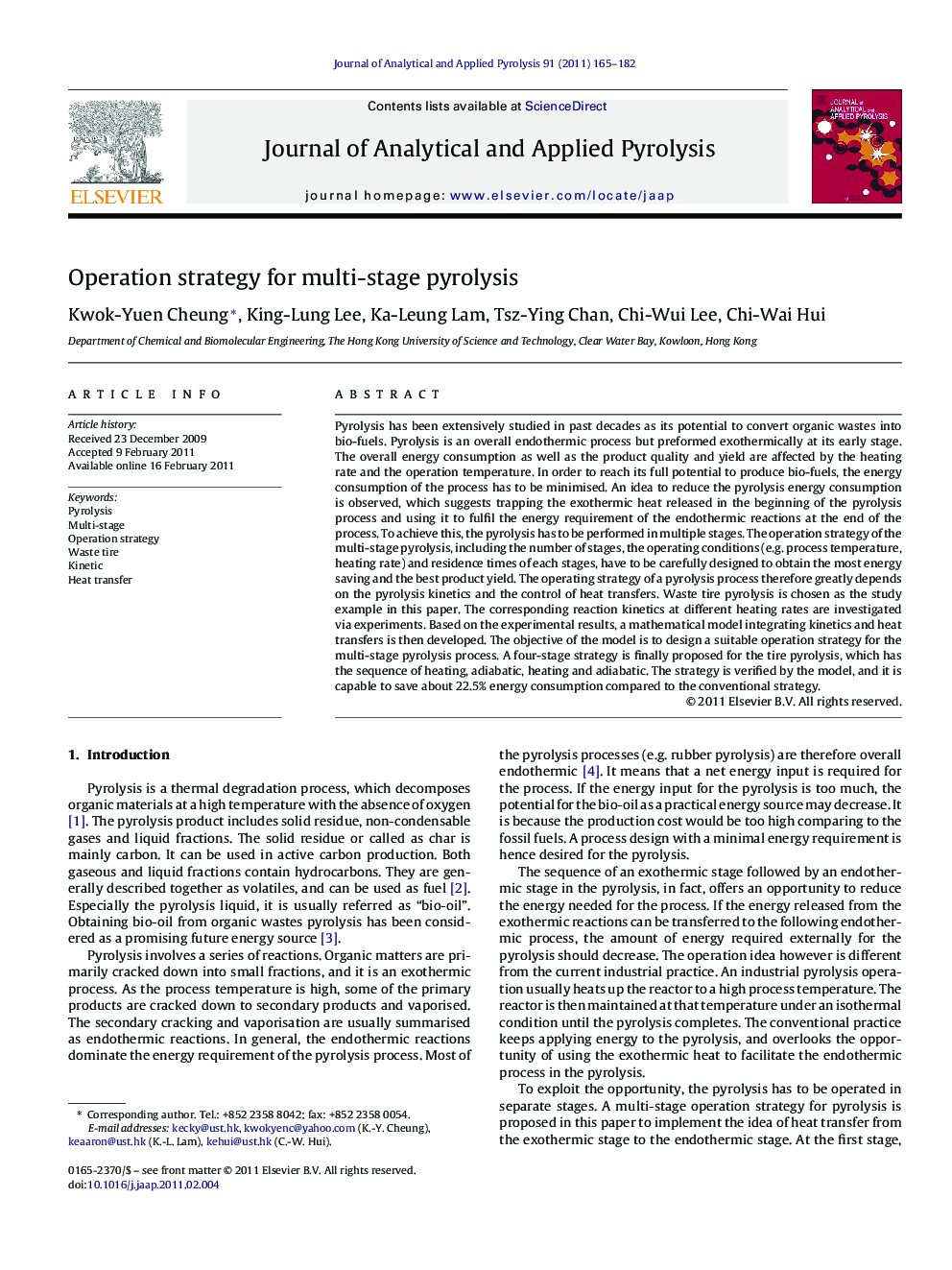| Article ID | Journal | Published Year | Pages | File Type |
|---|---|---|---|---|
| 1198007 | Journal of Analytical and Applied Pyrolysis | 2011 | 18 Pages |
Pyrolysis has been extensively studied in past decades as its potential to convert organic wastes into bio-fuels. Pyrolysis is an overall endothermic process but preformed exothermically at its early stage. The overall energy consumption as well as the product quality and yield are affected by the heating rate and the operation temperature. In order to reach its full potential to produce bio-fuels, the energy consumption of the process has to be minimised. An idea to reduce the pyrolysis energy consumption is observed, which suggests trapping the exothermic heat released in the beginning of the pyrolysis process and using it to fulfil the energy requirement of the endothermic reactions at the end of the process. To achieve this, the pyrolysis has to be performed in multiple stages. The operation strategy of the multi-stage pyrolysis, including the number of stages, the operating conditions (e.g. process temperature, heating rate) and residence times of each stages, have to be carefully designed to obtain the most energy saving and the best product yield. The operating strategy of a pyrolysis process therefore greatly depends on the pyrolysis kinetics and the control of heat transfers. Waste tire pyrolysis is chosen as the study example in this paper. The corresponding reaction kinetics at different heating rates are investigated via experiments. Based on the experimental results, a mathematical model integrating kinetics and heat transfers is then developed. The objective of the model is to design a suitable operation strategy for the multi-stage pyrolysis process. A four-stage strategy is finally proposed for the tire pyrolysis, which has the sequence of heating, adiabatic, heating and adiabatic. The strategy is verified by the model, and it is capable to save about 22.5% energy consumption compared to the conventional strategy.
